Nota bene
I wrote this blog posting in 2016. However, now it is clear that its words and sentiments ring truer and more urgent today than when I first wrote it.
Moreover, as tomorrow is World Kindness Day, then, perhaps the best we can do today, on Remembrance Sunday, is to ensure that we will thrive to build a world of peace and justice by embracing kindness to defeat the political economy of hatred and despair.
Be Kind to Yourself, Be Kind to Others. You reconcile all beings in the world.
“Simplicity, patience, compassion.
These three are your greatest treasures.
Simple in actions and thoughts, you return to the source of being.
Patient with both friends and enemies,
you accord with the way things are.
Compassionate toward yourself,
you reconcile all beings in the world.”― Lao Tzu
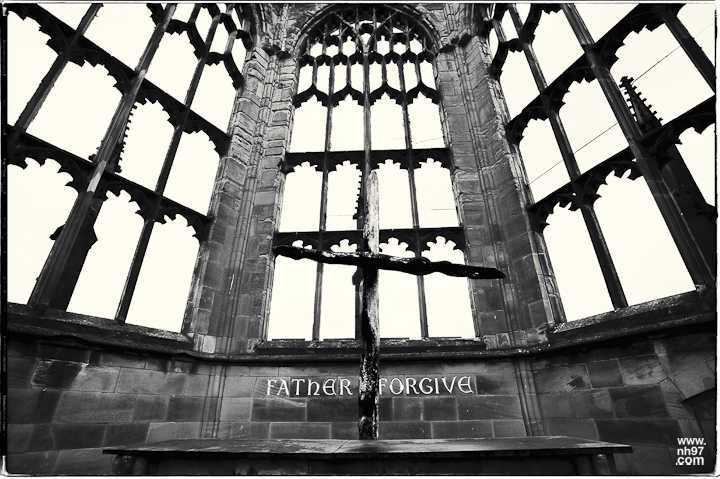
At this time of nationalism and bombast, the Coventry message of hope reminds us of our shared humanity across backgrounds, faiths, civilisation and cultures. And at a time when our country is divided, pitting itself against our European neighbours, we’d do well to remember the hopeful and enduring story of Coventry.
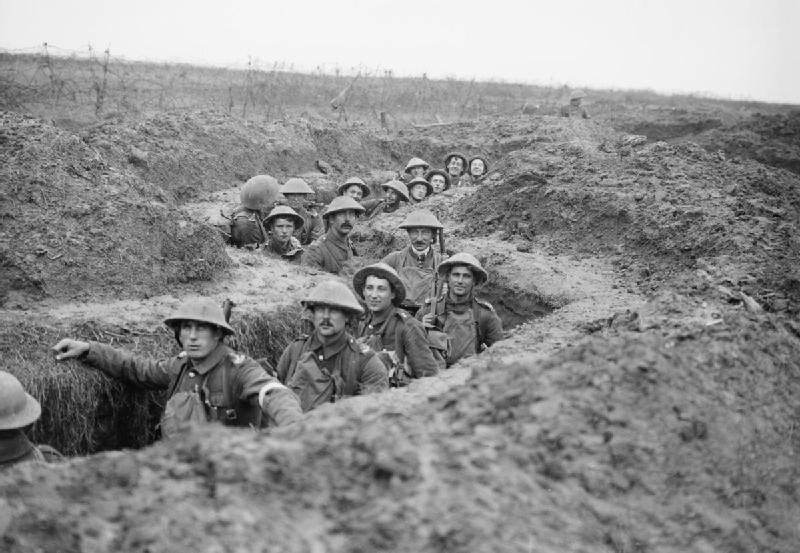
Men of the 11th Battalion, Royal Inniskilling Fusiliers in a captured German communications trench near Havrincourt during the Battle of Cambrai, 20 November 1917. Alamy Stock Photo
Dulce et Decorum Est
Bent double, like old beggars under sacks,
Knock-kneed, coughing like hags, we cursed through sludge,
Till on the haunting flares we turned our backs,
And towards our distant rest began to trudge.
Men marched asleep. Many had lost their boots,
But limped on, blood-shod. All went lame; all blind;
Drunk with fatigue; deaf even to the hoots
Of gas-shells dropping softly behind.
Gas! GAS! Quick, boys!—An ecstasy of fumbling
Fitting the clumsy helmets just in time,
But someone still was yelling out and stumbling
And flound’ring like a man in fire or lime.—
Dim through the misty panes and thick green light,
As under a green sea, I saw him drowning.
In all my dreams before my helpless sight,
He plunges at me, guttering, choking, drowning.
If in some smothering dreams, you too could pace
Behind the wagon that we flung him in,
And watch the white eyes writhing in his face,
His hanging face, like a devil’s sick of sin;
If you could hear, at every jolt, the blood
Come gargling from the froth-corrupted lungs,
Obscene as cancer, bitter as the cud
Of vile, incurable sores on innocent tongues,—
My friend, you would not tell with such high zest
To children ardent for some desperate glory,
The old Lie: Dulce et decorum est
Pro patria mori.- Wilfred Owen
“Blessed are the peacemakers, for they will be called the children of God.” Matthew 5:9
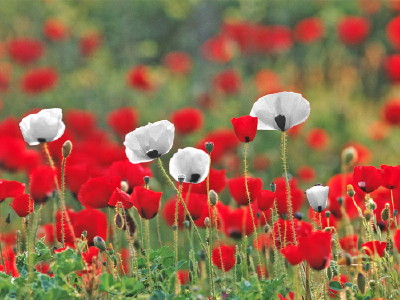
Photo: trinitygosforth.org.uk
'They shall grow not old, as we that are left grow old: Age shall not weary them, nor the years condemn.
At the going down of the sun and in the morning, We will remember them.'- For the Fallen (the Ode of Remembrance) - Laurence Binyon
On the 11th of November 1918 Private Arthur Wrench of the Seaforth Highlanders wrote in his diary: “I think it is quite hopeless to describe what today means to us. We who will return to tell people what war really is surely hope that 11 am this day will be of great significance to generations to come. Surely this is the last war that will ever be between civilised nations.”
From our perspective what a terribly tragic irony, given the state of our world today: A world at war with itself.
It is 100 years since the Armistice was signed at the end of the First World War, and 99 years since the Cenotaph was unveiled and the Unknown Warrior was buried in Westminster Abbey.
It is eternally important that we remind ourselves of the dreadful cost of war if we are ever to live in peace
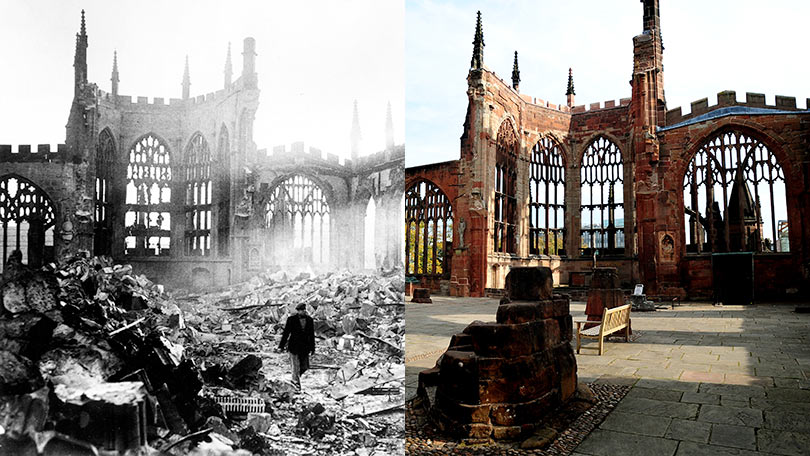
Photo:bt.com
14 November 1940: The Destruction and Re-birth of Coventry
“On 14 November 1940 the Luftwaffe launched its most devastating bombing raid of the Second World War so far. The target was Coventry, a manufacturing city in the heart of England with a beautiful medieval centre.
As dawn broke over a ruined city, a horrific scene of destruction greeted the survivors. Homes and factories were flattened and many buildings were consumed by flames so intense, the city's sandstone brickwork glowed red. The air stank of burning flesh, and bodies, some mutilated beyond recognition, lay in the streets. Amid the broken walls and burning buildings, a 14-year-old girl was making her way to school.”…Continue to read
Coventry, My City, and its Message of Hope to the World
Coventry: A remarkable historical city, my home town since 1974, when I married my Coventrian wife, Annie. Coventry, where I have made many wonderful friends, taught at its University for many years, was inspired by its values, spirit, and history, envisioning and enabling me to co-founded the Centre for the Study of Forgiveness and Reconciliation at Coventry University. The Centre was officially inaugurated on 11 March, 1996, when its distinguished patron, Mary Robinson, the President of Ireland, delivered the inaugural Lecture at Coventry Cathedral.
Remember and Forgive, Reconcile and make Peace
This is, once again, the timeless and noble message from Provost Richard Howard and Coventry Cathedral to those who think anger, revenge, retribution and war are what is needed to settle personal, regional and international disputes:
‘In the midst of war – a time when anger and defiance could have ruled the day – Provost Howard chose the harder, more transformative path. I wonder how our world might be changed today if we took on living the words of this Litany.’
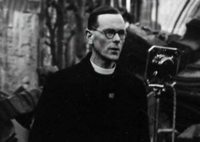
Richard Howard: The Man who Gave us the Gift of Forgiveness
Father Forgive
Reimagining a Better World: A World of Hope and Healing
Beyond the Agony and Hatred
Five years ago, as noted in an editorial in the Guardian, our former prime minister, David Cameron, went to the Imperial War Museum (IWM) in London and announced plans for a “truly national commemoration” of the war’s many centenaries, then all upcoming. In his speech, the then prime minister said that the purposes would be “to honour those who served, to remember those who died, and to ensure that the lessons learned live with us forever”. That was OK as far as it went. Veterans are there to be honoured. The dead should be remembered. But Mr Cameron never spelled out the hard bit – what those lessons were and, more importantly in 2018, what they are now.
Indeed, after his divisive EU Referendum, Mr. Cameron left us to it and went in search of a new life. So, I now wish to spell out what those lessons were, and how we may find the path to a peaceful and prosperous co-existence with ourselves and with our neighbours:
Eurosceptics should visit Coventry Cathedral: The EU's Higher Purpose
"Healing the wounds of history, learning to live with difference and celebrate diversity, and building a culture of peace and justice in the interest of the common good"
This is the Europe that the Coventry Story encourages us to believe in
uropean Union (EU) is not merely a free-trade area, or just a market place for economic activity, it is a region of the human spirit. It is a place of our moral and spiritual compass to build a better world in the interest of the common good. Like anything else in life, the EU, as an institution, is not perfect. It needs to be improved; and most importantly, rather than retreating from the EU, the best way to avoid further crises would be to reform the European institutions to make them stronger; something that I believe David Cameron to some extent has achieved in his recent negotiations.
I for one, as an engaged British Citizen, living in this globalised world, hugely prefer to be in Europe, rather than outside it. I have come to this conclusion, mainly as a result of “My Coventry Story”, a story beginning with a previous Europe, a Europe of war and destruction, and ending with today’s Europe, a Europe of hope, solidarity, cooperation, integration, and peace.
This is why I firmly believe that the Eurosceptics in Britain, and indeed elsewhere in Europe, should come to Coventry and visit Coventry Cathedral, to witness the folly, stupidity and inhumanity of war and to reflect and think about the beauty, wisdom and the relevance of Coventry’s message of hope, forgiveness and reconciliation for Europe today.
For me seeing the EU, mainly as a Peace Project, means that we all, as a whole gain more in Europe, as Winston Churchill so eloquently noted in his speech in The Hague in 1948:
“If we all pull together and pool the luck and the comradeship … and firmly grasp the larger hopes of humanity, then it may be that we shall move into a happier sunlit age, when all the little children who are now growing up in this tormented world may find themselves not the victors nor the vanquished in the fleeting triumphs of one country over another in the bloody turmoil of … war, but the heirs of all the treasures of the past and the masters of all the science, the abundance and the glories of the future.”
Continue to read: Eurosceptics should visit Coventry Cathedral: The EU's Higher Purpose
